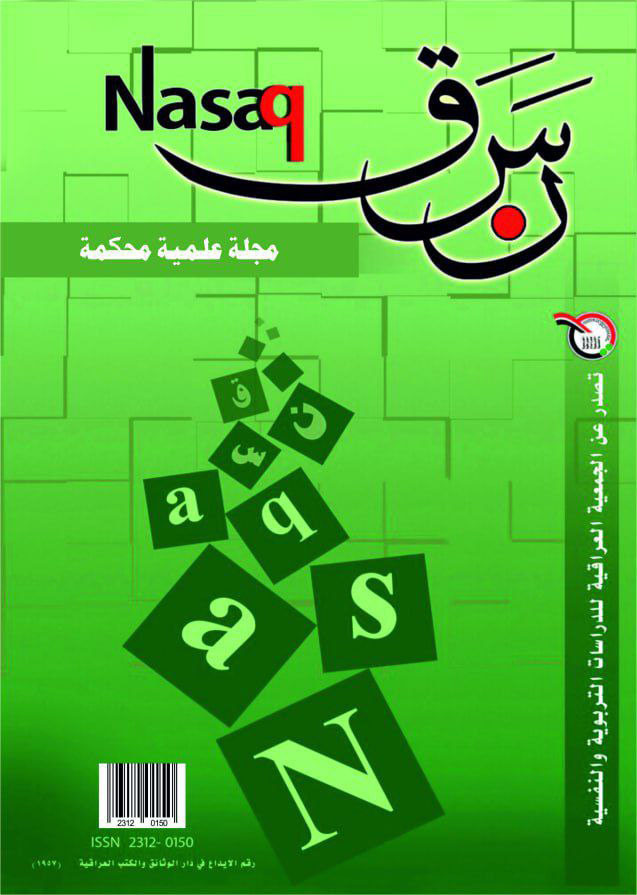Abstract
According to research, semantic elaboration helps learners remember lists of known and unknown words recorded as general terms. In other research, semantic elaboration has yet to be shown to improve the recall of new word definitions. It is anticipated that semantic elaboration may harm the acquisition of word forms, considering these results and the inverse association between processing information in a second language (L2) for meaning and form. The research operationalized semantic elaboration by adding additional words to phrases to evaluate this notion. The current research aimed to determine how semantic and structural elaboration affected the acquisition and retention of L2 vocabulary. Fifty college students took part. They were divided into two elaboration groups at random: structural and semantic. Three sessions were used to teach 45 new English terms, and each group's objective included categorizing the words according to their number of letters or semantic significance (structure). They completed a post-test right after and another one two weeks later. The findings demonstrated that the text seems grammatically correct and has no spelling errors. However, it could be rewritten for clarity. Here is a suggestion:
The effects of adding more meaning and organization to the vocabulary learning process of English as a Foreign Language (EFL) learners. Acquisition and retention from the assigned writing assignment were not significantly different. For more detailed findings, further study is needed to examine semantic elaboration's effectiveness at different language proficiency levels. A study is needed to examine semantic elaboration's effectiveness at different language proficiency levels.
The effects of adding more meaning and organization to the vocabulary learning process of English as a Foreign Language (EFL) learners. Acquisition and retention from the assigned writing assignment were not significantly different. For more detailed findings, further study is needed to examine semantic elaboration's effectiveness at different language proficiency levels. A study is needed to examine semantic elaboration's effectiveness at different language proficiency levels.
Keywords
Iraqi students
L2 Language Learning
Semantic Elaboration
Writing
Abstract
وفقًا للبحث، يساعد التفصيل الدلالي المتعلمين على تذكر قوائم الكلمات المعروفة وغير المعروفة المسجلة كمصطلحات عامة. في أبحاث أخرى، لم يُظهر التفصيل الدلالي بعد أنه يحسن تذكر تعريفات الكلمات الجديدة. ومن المتوقع أن التفصيل الدلالي قد يضر باكتساب أشكال الكلمات، مع الأخذ في الاعتبار هذه النتائج والارتباط العكسي بين معالجة المعلومات في اللغة الثانية للمعنى والشكل. قام البحث بتفعيل التفصيل الدلالي عن طريق إضافة كلمات إضافية إلى العبارات لتقييم هذه الفكرة. يهدف البحث الحالي إلى تحديد مدى تأثير التفصيل الدلالي والبنيوي على اكتساب مفردات اللغة الثانية والاحتفاظ بها. وشارك فيها خمسون طالباً جامعياً. وقد تم تقسيمهم إلى مجموعتين تفصيليتين بشكل عشوائي: الهيكلية والدلالية. تم استخدام ثلاث جلسات لتدريس 45 مصطلحًا جديدًا للغة الإنجليزية، وكان هدف كل مجموعة يتضمن تصنيف الكلمات وفقًا لعدد حروفها أو أهميتها الدلالية (البنية). لقد أكملوا الاختبار اللاحق مباشرة بعد ذلك وآخر بعد أسبوعين. أظهرت النتائج أن تأثيرات التفصيل الدلالي والبنيوي على اكتساب متعلمي اللغة الإنجليزية للمفردات والاحتفاظ بها من مهمة الكتابة المعينة لم تكن مختلفة بشكل كبير. للحصول على نتائج أكثر تفصيلاً، هناك حاجة إلى مزيد من الدراسة حول فائدة التوضيح الدلالي على مستويات المهارات اللغوية المختلفة.
Keywords
التفصيل الدلالي، الكتابة، تعلم اللغة الثانية، الطلبة العراقيين
